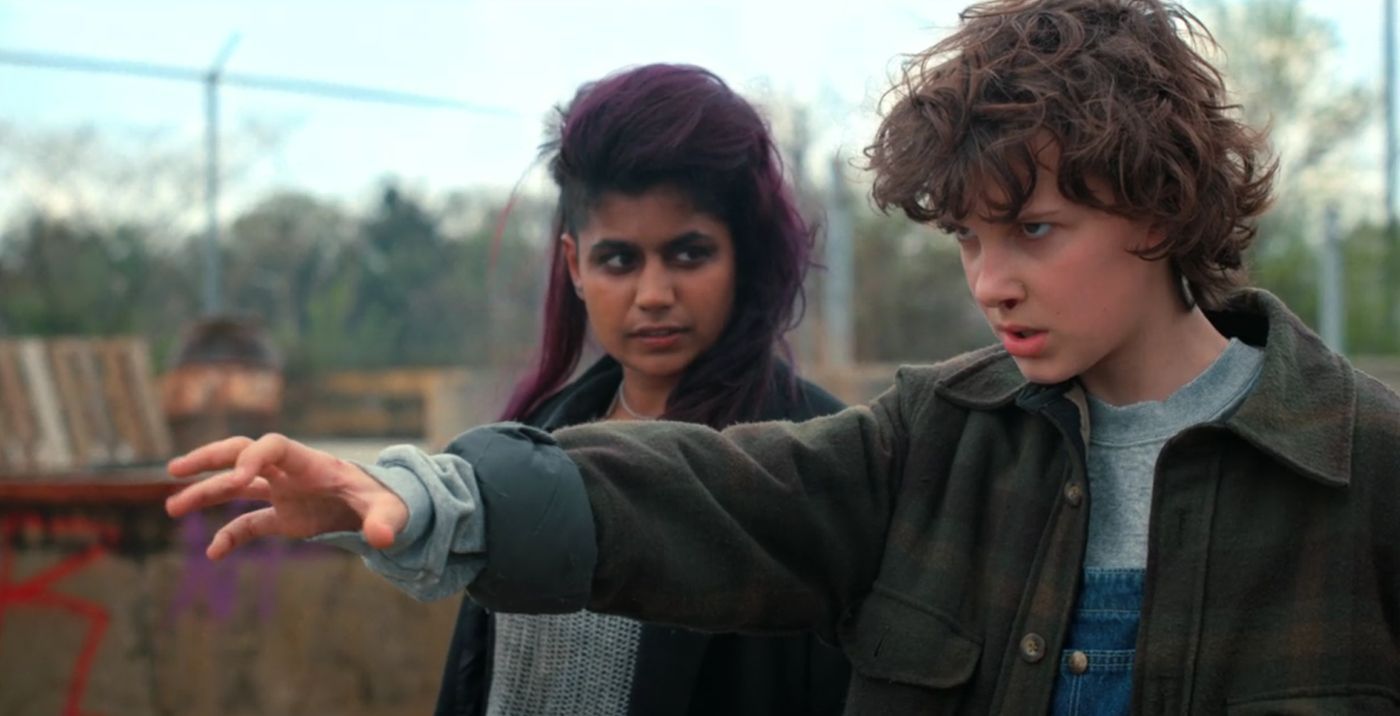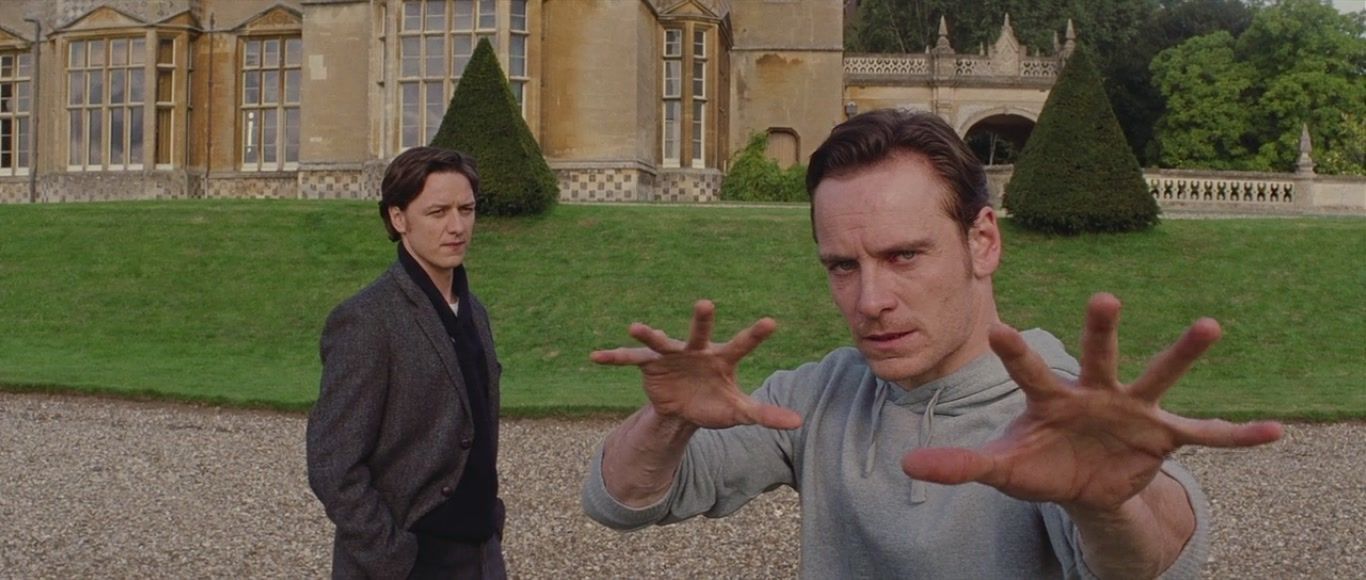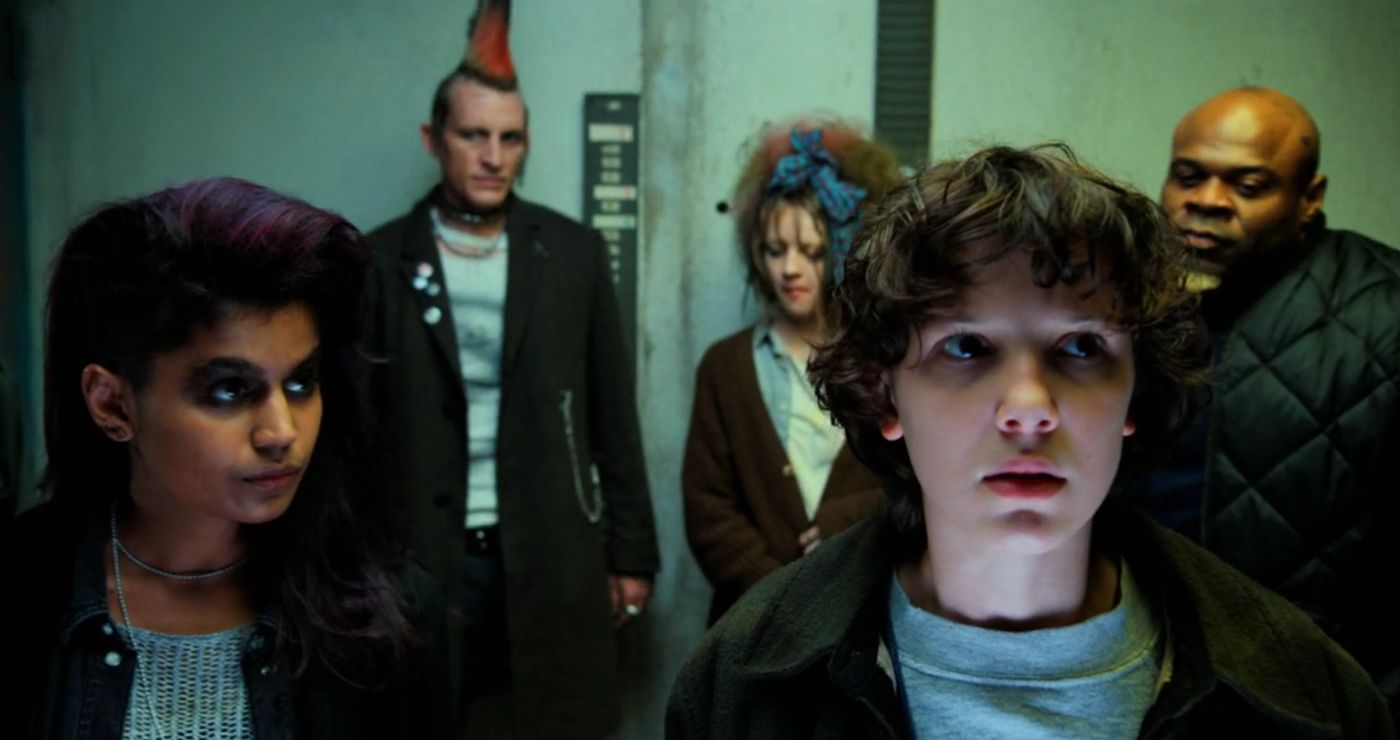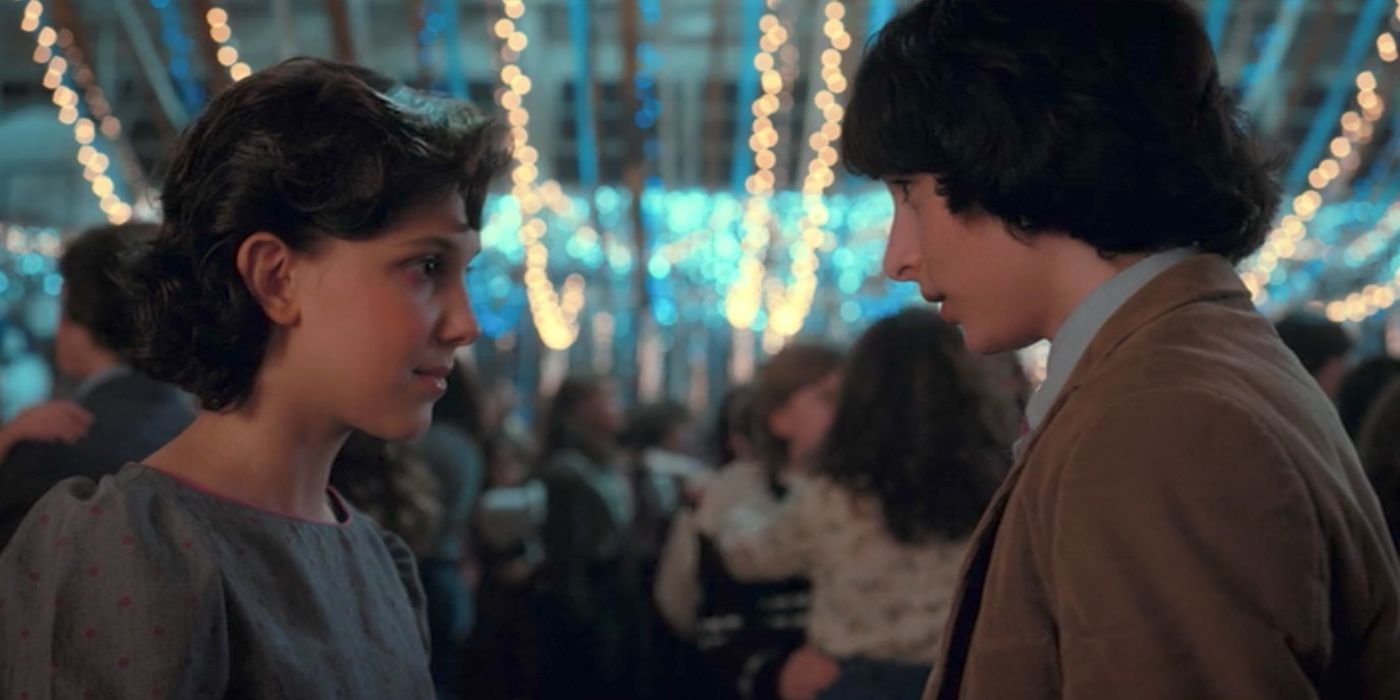In Stranger Things 2, writer-directors The Duffer Brothers took their biggest risk yet with how they dealt with the story of Eleven (Millie Bobbie Brown). The second season brought back virtually everything that was beloved and worked like gangbusters about season one while deepening the characters' relationships and delivering amusing new team ups, like Steve (Joe Keery) mentoring Dustin (Gaten Matarazzo) and taking charge of the entire group of kids. The Duffer Brothers had different plans for Eleven, however, and in the 7th episode, 'The Lost Sister', they not only finally revealed Eleven's origin but opened up the larger Stranger Things universe beyond the town limits of Hawkins, Indiana.'The Lost Sister' is unlike any other Stranger Things episode, which is one of its virtues. This isn't to say it was a perfect episode of television. It can be tough to swallow the logical holes of Eleven, a young girl who is sheltered, barely educated and hardly aware of how the world works, being able to travel all the way to Chicago and easily finding her 'sister' in one of America's biggest and most dangerous cities. Removing all of the action from Hawkins to Chicago was also a jarring deviation to the series' formula for some fans and thus created controversy, but flaws aside, this divergence turns out to be Stranger Things' most exciting story not just in and of itself, but for what it means for the series' future.
Related: Who is The Lost Sister?
In 'The Lost Sister', Eleven meets Kali (Linnea Berthelsen), a fellow psychic who was also experimented on by Dr. Martin Brenner (Matthew Modine). Kali, who is a few years older than Eleven, is possessed of different psychic powers - the ability to cast illusions - and runs a group of outcasts loyal to her whom she saved in 'heart and mind'. In Chicago, Eleven isn't 'Eleven' or 'El', she is Jane, her real name, and for the first time, Jane finds someone who shares her past tragedy and is an ersatz sister to her.
Stranger Things proudly wears all of its myriad influences on its sleeve - from Stephen King to Steven Spielberg films - but with 'The Lost Sister', the Duffer Brothers go hard and expertly into X-Men territory. Eleven's story is very much an X-Men tale and the 'The Lost Sister' makes that analogy overt. Eleven's adventure with Kali and the outcasts would be at home in a Bryan Singer X-Men film from this decade or from The Gifted on FOX. Even the real name of Eleven, who is an incredibly powerful psychic and telekinetic, revealed itself to be an X-Men nod: Jane is an anagram for Jean, the X-Men's tragic psychic Jean Grey. 'Jane Ives' is similar (by design) to 'Jean Grey' in the number of letters and syllables.
For Jane, Kali isn't just a long lost 'sister' and newfound 'family' who takes her in, Kali is a mentor, serving as both Charles Xavier and Magneto to Jane. (Not to mention Kali's purple hair invokes Psylocke, another of the X-Men's psychics.) The scene where Kali teaches Jane how to harness her anger to fuel her telekinesis and thus move a train car towards them harkens to the scene in X-Men: First Class where Xavier taught Magneto how to use his powers to move the enormous satellite dish that would serve as the original Cerebro. Kali succeeded in showing Jane how to unleash her true potential, and their bond as 'sisters', even in one hour-long episode, was brilliantly established to be as genuine and complex as the eternal brotherhood between Professor X and Magneto.
Related: Stranger Things 2 Fixes Season 1's Biggest Problem
Kali could have been one dimensional and upon meeting her, we awaited the obvious reveal that her friendliness masked her true duplicitous nature, but that thankfully didn't happen. Kali was much more textured and fascinatingly multi-dimensional. Like Jane, she suffered at the hands of Brenner's experiments but had the strength of will and daring to escape and forge a life for herself. She found other young people 'society discarded' and became their leader and savior. While the mission she dedicated her life to - finding and executing everyone associated with Brenner who kidnapped and experimented on her - is dark, Kali also welcomed Jane with open arms and was caring and compassionate towards her 'sister'.
Kali offered Jane a home, recognizing that Jane was desperately searching to belong. However, Kali did also want to use Jane's powers, specifically her ability to find people psychically, to her advantage. Still, Kali never manipulated or deceived Jane; she offered her a choice and was true to her word that Jane could leave whenever she wanted. Ultimately, what Jane learned was that she didn't want to live as some kind of dark avenger. She didn't want a life, such as it was, of being a criminal always on the run, dedicated to dealing death, even though she herself has killed 'bad men' in the past. The moment when Jane refused to execute Ray Caroll, one of the scientists in Hawkins National Laboratory who helped lobotomize Jane's mother, and then used her telekinesis to stop Kali from killing Caroll was a pivotal moment for her. At that point, Jane decided who she really was and what she wanted.
What Jane wanted in her heart of hearts was the home she was promised in Hawkins, to be with Mike (Finn Wolfhard) and his friends, and to try to live a normal life. Jane is still, after all, a child. She saw the life Kali offered and rejected it because while it meant everything for her to find her 'sister', living the life Kali offered isn't who Jane is - or wants to be. There were hints of Dark Phoenix in Jane, but unlike Jean Grey, she wasn't swallowed up by the negative emotions that rage within her.
In choosing to return home to Hawkins so that she can save her friends, Jane finally got to define for herself the kind of person she wants to be. For her part, Kali was obviously heartbroken that Jane walked away from her. Jane leaving was the greatest loss Kali has known since her childhood. This story, of course, isn't over. How Kali will feel about Jane when they cross paths in the future is a great hook for future seasons.
Related: Stranger Things' Creators Already Working on Season 3
There were other pop culture odes throughout 'The Lost Sister' beyond the obvious X-Men nods. Kali and Jane both having tattoos doesn't just reference Magento being stamped as a boy imprisoned in a concentration camp on Auschwitz , it's reminiscent of James Cameron's short-lived sci-fi series Dark Angel, which starred Jessica Alba as a genetically engineered super soldier who also had a tattoo (of a barcode) and was trying to find the other X-5s, who were her identically tattooed, generically engineered brothers and sisters who also escaped from government experimentation. Kali's quest for vengeance, however, reminds us of Oliver Queen's original mission in the first season of Arrow, when he was charged by his late father to scratch off every name from The List of the criminals who had 'failed' Starling City.
It was easy to feel bad for Millie Bobby Brown, who was isolated from the rest of the main cast outside of Jim Hopper (David Harbour). For most of the first half of season 2, Millie had to act nearly all of her scenes solo, unable to play with her fellow actors until the final two episodes. The Kali story in Chicago ultimately turned out to be a challenging journey for the actress, who got to broaden her range by working alongside a new cast of characters while being the centerpiece of the crucial task of setting up the Stranger Things world beyond Hawkins. Jane leaving Hawkins to meet her mother and then find Kali in Chicago made her return to seal the gateway in the Upside Down and reunite with Mike at the school dance even more meaningful and emotional. In her short time as 'Bad Eleven', Jane actually found what was best about Eleven.
Related: Stranger Things 2 Still Has a Timeline Problem
It was both a bold move by the Duffer Brothers and a refreshing change of pace to break from the established Stranger Things norm and do a different kind of story outside of Hawkins for one episode. This also wasn't a case of interrupting the narrative to shoehorn in set ups for a shared universe like what fans resent Iron Man 2 and Avengers: Age of Ultron for doing. Jane's quest for her identity is organic to her character. Not just a brief respite from the horrors of the Upside Down, Jane's trip to Chicago was vital for two reasons: it completed Jane's story of personal discovery, which set up how she would play a pivotal role in helping the heroes win in season 2, and it served as a compelling gateway to the greater Stranger Things universe in season 3 and beyond.
The Duffers successfully walked the tightrope of season 2 being too similar to season 1. Stranger Things' heart is in Hawkins, but the series will eventually have to evolve as it continues. As the children grow older, leaving the confines of Hawkins will happen more and more. 'The Lost Sister' is an important and very cool glimpse at what's to come for the series and where it could go. We know now there are much wider implications to the experiments done on Jane and Kali, and the promise of meeting Kali again or other psychic children allows the Duffers to make the Stranger Things universe more expansive, be it by taking the characters beyond Hawkins or bringing more characters from the outside world to Hawkins. Stranger Things is now richer for it and successfully showcased its potential to tell more varied types of stories because of 'The Lost Sister'.
NEXT: WHAT HAPPENED TO ELEVEN BETWEEN SEASONS 1 AND 2
Stranger Things 2 is now streaming on Netflix.




